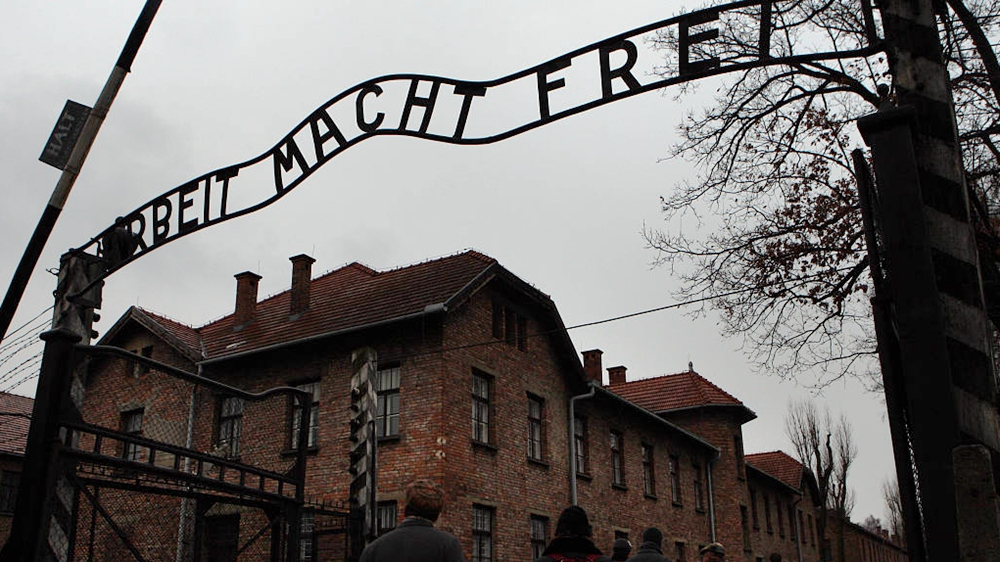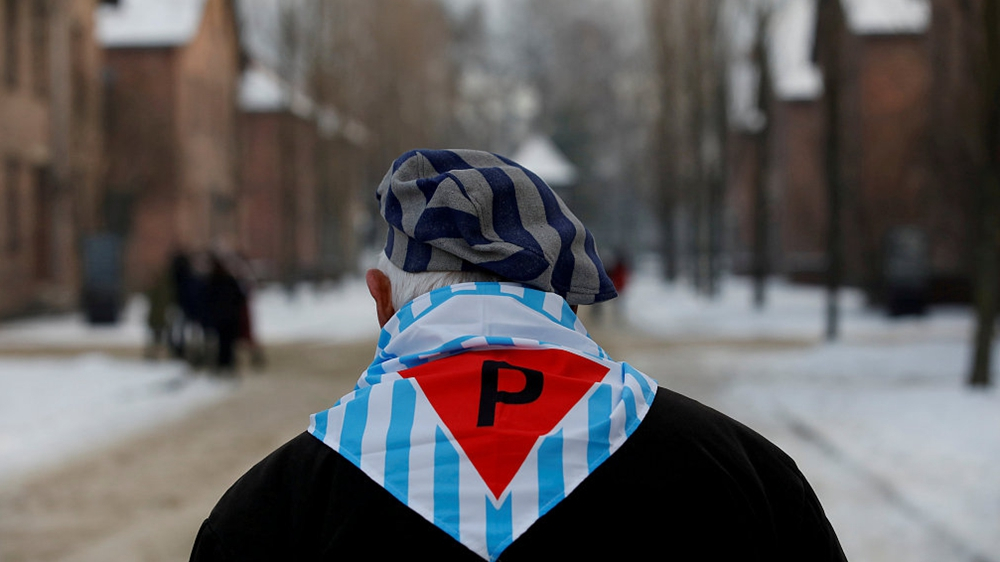
German Chancellor Angela Merkel attends the commemoration ceremony of the victims of the 80th Anniversary of the Night of Broken Glass at the German Federal Parliament in Berlin, November 9, 2018. /VCG Photo
German Chancellor Angela Merkel attends the commemoration ceremony of the victims of the 80th Anniversary of the Night of Broken Glass at the German Federal Parliament in Berlin, November 9, 2018. /VCG Photo
German Chancellor Angela Merkel will visit the Auschwitz death camp in Poland on Friday for the first time in her 14 years as chancellor, as Germany grapples with a resurgence of anti-Semitism.
Merkel will become only the third German chancellor to visit, with her highly symbolic trip coming ahead of the 75th anniversary of the liberation of the camp by Soviet troops on January 27, 1945.
The visit "is a particularly important signal of attention and solidarity at a time when Auschwitz survivors are victims of anti-Semitic insults and hate-filled emails," said Christoph Heubner, deputy chairman of the Auschwitz International Committee.
Ahead of the trip, Germany's federal states are expected to approve a 60 million euro (66 million U.S. dollars) donation for the Auschwitz-Birkenau Foundation, which is marking 10 years since it was set up.
The 65-year-old Merkel, who was born nine years after the end of World War II, will be accompanied by Polish Prime Minister Mateusz Morawiecki and a survivor of the camp.

The Nazis' infamous iron sign declaring "Arbeit Macht Frei" ("Work Will Set You Free"), is stolen from the entrance of the former Auschwitz death camp, Oswiecim, November 30, 2017. /VCG Photo
The Nazis' infamous iron sign declaring "Arbeit Macht Frei" ("Work Will Set You Free"), is stolen from the entrance of the former Auschwitz death camp, Oswiecim, November 30, 2017. /VCG Photo
Josef Schuster, head of the Central Council of Jews in Germany, and Ronald Lauder, head of the World Jewish Congress, will also be taking part in the visit.
Merkel will begin the visit by walking through the camp's infamous gate, which bears the chilling Nazi message "Arbeit macht frei" (Work will set you free).
She will hold a minute's silence by the Death Wall where thousands of prisoners were shot dead.
Merkel will also give a speech during the visit, as well as lay a wreath at the nearby Birkenau camp.
Merkel has called the Holocaust a "break with civilization" and has voiced concern about the rise of anti-Semitism and the far right in Germany.
The visit comes two months after an attack aimed at a synagogue in the eastern city of Halle in which two people were killed.

A survivor is seen at Auschwitz camp as he attends ceremonies marking the 74th anniversary of the liberation of the camp and International Holocaust Victims Remembrance Day, in Oswiecim, January 27, 2019. /VCG Photo
A survivor is seen at Auschwitz camp as he attends ceremonies marking the 74th anniversary of the liberation of the camp and International Holocaust Victims Remembrance Day, in Oswiecim, January 27, 2019. /VCG Photo
Police figures show that anti-Semitic offences rose by almost 10 percent in Germany last year from the previous year to 1,646 - the highest level in a decade. Violent attacks went up more than 60 percent.
"We have to tell people today: Do not be quiet, do something," Esther Bejarano, a 94-year-old Auschwitz survivor, told the weekly Der Spiegel.
Bejarano, who lost her parents and sister in Auschwitz, said she was afraid that history "will repeat itself".
Survivors like Bejarano are becoming few and far between. Two of the most prominent survivors – French women's rights champion Simone Veil and Nobel Peace Prize winner Elie Wiesel of the United States – have died in recent years.
In total, around 1.1 million people were killed at Auschwitz-Birkenau, including non-Jewish Poles, Soviet prisoners of war, Roma and anti-Nazi fighters. Many were killed the same day they arrived at the camp.
Merkel follows in the footsteps of previous German chancellors Helmut Schmidt, who came in 1977, and Helmut Kohl, who visited in 1989 and 1995.
(With input from AFP)